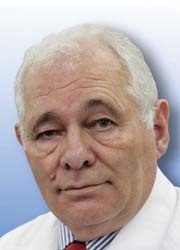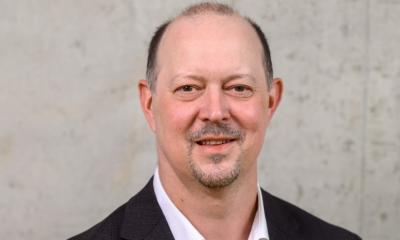Global economic crisis: a cruel set back for Russian healthcare
Despite stronger government support over the past few years, and Russia's healthy medical care prospects, funding is now a lowly 3.6% of the nation's income and again problem number one for all those working in healthcare delivery

Leonid Roshal
‘The Russian healthcare system was the best in the world, because it was very important for communists to demonstrate that they could do everything better. And they could; they organised a patient-focused system. But, constant lack of money has dehydrated our system,’Professor Leonid Roshal, head of the Moscow Research and Clinical Institute of Emergency Children’s Surgery and Trauma told European Hospital’s correspondents Olga Ostrovskaya and Meike Lerner. ‘I participated in a meeting with German doctors some time ago, in our economics school. They spoke about their healthcare system and I asked just one question: Could you work if your medical system received only 3.6 % of the total State income? No, they replied: We would die. We have
8-9% and that’s not enough!’
For several years, Russian healthcare has received a substantial infusion of money because, under the State national project, ‘health’ became one of the most important issues in Russia. Centres for advanced medical technologies were built; hospitals in different regions at last received modern equipment, and physicians’ salaries were augmented.
Last year, this project allocated 3.6 billon roubles for healthcare. The government prepared the main concept of healthcare development until 2020, and a website (www.zdravo2020) was opened for discussions and input on this concept. Those findings have now been passed to the government for confirmation.
In a word, the plans were great. The government declared three new directions for the national healthcare programme. Oncology was to receive 28.5 billion roubles; lifestyle information 3.5 billion roubles, and healthcare information technologies 16 billion roubles. However, the current economical crisis has altered all those plans.
In December, a special meeting on public services was held in Moscow. During this, Russian healthcare was discussed, and Prof Roshal again raised the problem of low funding. The point is that the bulk of funding for the Russian healthcare system comes from State insurance fund, which receives its money from business contributions. Thus, if business is bad, so much the worse for the health insurance system. The level of dues has fallen by 20 %. The second contribution received by the healthcare system comes from the Federal budget – but, presently, only half of that financing has been approved.
The situation is difficult – particularly for the new high technology centres in Perm and Astrahan: although they have been built, there isn’t enough money to carry out surgery and train new teams of physicians. In this situation, the most efficient allocation of resources is problem number one.
However, the considerable attention the Russian government has paid to healthcare during recent years has encouraged Russian doctors. ‘During the ’90s we didn’t have money,’ Prof Roshal recalled. ‘But, our doctors worked without money. They had small salaries, but did not complain. Only two physicians, among 200, left our Institute, and I must confess that they were bad doctors. I think we can stand this crisis.’
Can medical manufacturers still find a market in Russia?
01.03.2009





